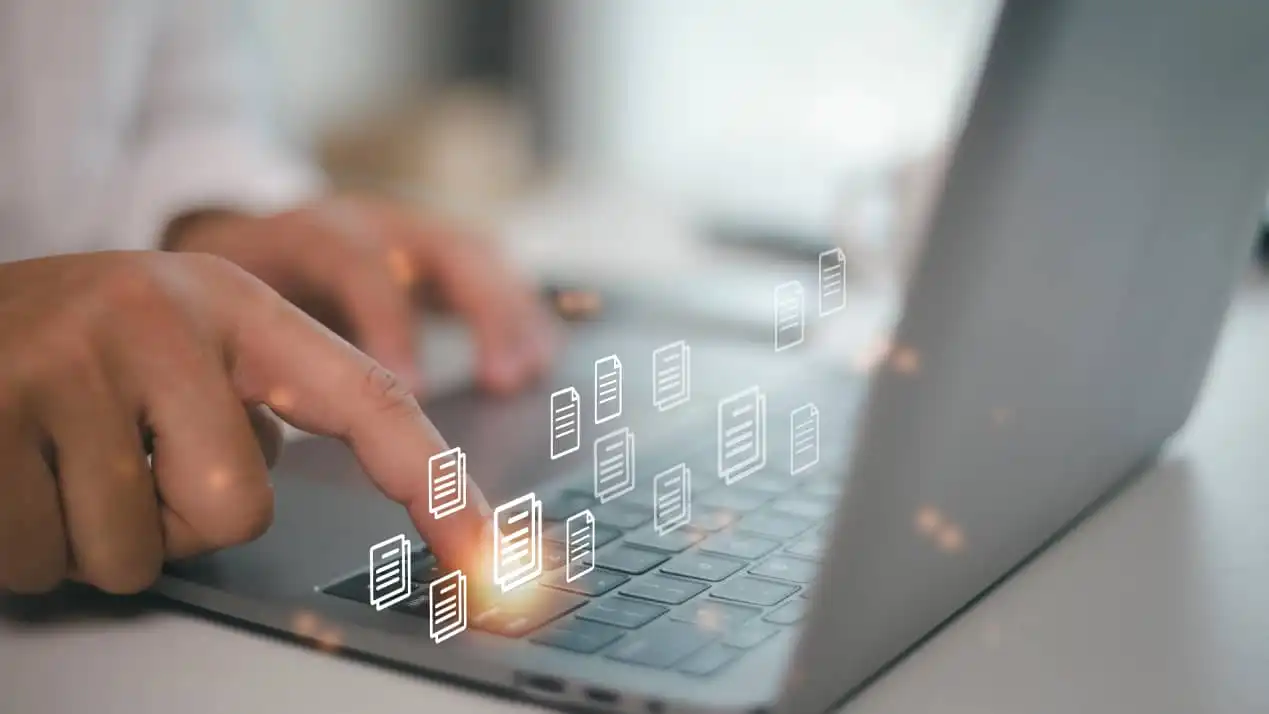The horizon of AI in Legal tech and its impact on legal professions
Artificial Intelligence systems are becoming significantly important to Legal technologies nowadays. We can all see how AI has already found a way to support advocates and clients positively and efficiently. At the same time, the investments in legal tech are skyrocketing and that is mainly because the demand for new innovative tools that enhance the legal process is higher than ever.
But still.
Every time a professional sector comes across a new technology, questions emerge concerning how that technology will potentially disrupt daily transactions and the workflow of that occupation. And for that, many legal professionals want to understand how AI might change or disrupt their profession.
And that is totally understandable, we are all skeptical about change and we would rather know more before applying any.
Therefore:
With AI being a trending phenomenon in Legal tech today, companies that provide AI technologies are continuing to find innovative ideas to develop ways that will handle the mundane and mechanical tasks within the legal profession, in pursuit of better efficiency and results. While also liberating the time of legal professionals to take up higher-level tasks such as negotiating deals, advising clients, and appearance in courts.
Check out: At $1.2 Billion, It’s Already A Record Year For Legal Tech Investment
Artificial intelligence within the legal profession.
You might be wondering:
Where does AI really fit in the legal profession, and which tasks are going to be enhanced thanks to it?
In this article, we will try to get a better understanding of the role of AI in the legal professions and how different legal professionals are using a lot of AI enabled technologies in a variety of ways to facilitate legal processes like document review, due diligence, legal research, contract review/management, predicting case outcomes, intellectual property law, divorce and more.
1. Document Review
We can agree that software is much quicker at classifying documents than humans and can produce results and outputs that can be statistically verified in a matter of seconds. They can assist in decreasing the burden on human workers by transmitting only documents that are relevant to the case instead of expecting humans to review all documents.
AI-enabled machines can review the content of documents and mark their relevance in a particular case. Once a specific type of document is marked as relevant, the AI can easily find other documents that are likewise relevant and enhance its own review.
We can look at the example of Bigle Legal, where they have their AI system breakdown and analyse contracts in a sophisticated manner for strong results.
2. Due Diligence
In law firms throughout the world, litigation support professionals are always busy carrying due diligence to report background details on behalf of their clients. This work includes verifying facts and figures and carefully assessing the decisions on previous cases to efficiently advise their clients.
AI systems can assist these litigation and support professionals in conducting their due diligence more effectively and accurately given that this work is usually tiresome and time-consuming for humans.
3. Legal Research
The majority of legal professionals carry out extensive legal research for their clients. This exercise can also be a time-consuming and tedious one; demanding a meticulous study of previous cases and going through countless resources.
But now:
AI machines can assist in decreasing the managerial engagement of this process by simplifying the compilation of background information. For example, an AI machine might search a database of past cases, locating only identical cases and retrieving the pertinent information, disrupting the conventional research methods.
AI is doing legal work, but it won’t replace lawyers, yet.
4. Contract Review and Management
Law firms usually devote plenty of time reviewing and assessing contracts for their clients. This process, which is intended to know contractual issues and risks, requires intensive examination. AI tools can streamline this task by independently or collectively evaluating contracts founded on a pre-designed AI prototype.
And for that, various software companies developed AI systems that serve this function, particularly for contract reviews. Software companies like Kira Systems, LawGeex, and eBrevia have managed to assist in classifying contracts faster and with fewer mistakes than humans.
AI And Machine Learning in Legal: Tools Every Lawyer Needs to Know (In a Nutshell)
5. Document creations and automation
Technology has already managed to automate the process of creating documents making it much simpler, faster and more efficient than it was before.
And it’s about to get even better:
The latest developments in AI allow us to build more efficient and robust next-gen document automation systems and since most of the tasks that revolve around document generating are repetitive and in need of constant human interaction, the AI system is much more capable of doing these tasks in a way more sophisticated matter.
We can look at the benefits of AI when it comes to document automation following these four steps:
1) The AI reads, understands and analyses the document.
2) The AI system manages the tasks that require a massive amount of data and process them significantly faster.
3) Then they analyse the structure of documents and make decisions based on historical data analysis (way more data than you can imagine).
4) We can automate the end-process controlling steps and let machines do the work every time. Thus, the AI helps us to suppress the results after the processing has been completed.
Check out Bigle Legal and stay tuned for upcoming AI updates.
6. Predicting Case Result
Being one of the more sophisticated versions of AI tools for legal tech, prognosticating legal results is much less traversed and it possesses tremendous potential.
Contrary to the human mind, AI can host and interpret tremendously large sets of legal data, and then give valuable bits of intelligence in real-time.
This is amazing:
This capability can help to decide the possibilities of winning a case, improving decision-making, and allocating resources for upcoming cases.
7. Intellectual Property Law
When it comes to intellectual property lawyers, the majority are usually involved in analysing vast IP portfolios striving to form a decision from the accessible content. And because registering a patent application is a hard and tiresome job; reviewing hundreds of records and doing manual research.
However, with AI tools, this is done at a quick speed. AI helps in drafting, reviewing, and formatting patent applications.
As we can see, AI can manage multiple monotonous jobs within your legal profession, which allows attorneys to use more time on analyses, counseling, negotiations, and court visits, and that is why it is turning out to be universal and diverse – an essential companion for every lawyer.
And as shared by Deloitte, an estimation of 100,000 legal functions are to be automated within the next twenty years. Law professionals will have to put into practice new talent approaches that revolve around AI and advanced legal technology as a whole, introducing new roles and expanding on existing ones.
How about you? How do you think AI will impact your own profession?
Find out more about it in our new AI Page !
Leave your comments below!
See the Bigle Legal software live in action request a demo now
 By
By




